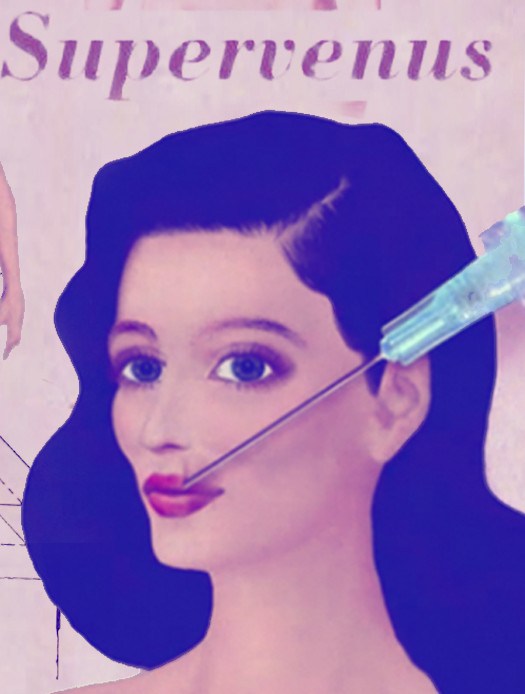Supervenus is a video that was entered into the 17th Brussels Short Film Festival and has since been making its way around the internet. It is a terrifying look at beauty. Supervenus literally dissects the history of the female body, and the extreme lengths women have to go through to achieve a disturbingly unnatural idealization of femininity. It begins with an image of a woman in a French anatomy book. A faceless surgeon then begins altering the image, beginning with superficial changes, like the removal of body hair, and continuing on until the actions are gory, grotesque, and extreme – ultimately destroying the illustration. She’s nipped, tucked, sliced, injected, trimmed, tanned and stretched. Her ribs are pulled out, and the fat is sucked out fat from every part of the body. At the end of the two-and-a-half-minute short film, the woman has turned into a zombie: brainless and falling apart.
The video shows the unrealistic and ultimately fatal beauty expectations enforced on women in society today. The given message is clear: beauty standards are going to kill us. Executive Producer, Frédéric Doazan illustrates the evolution of Western beauty standards for women. This film reflects the negative thinking and the pressure that extreme beauty ideals have on our society. The idea of Supervenus is extreme beauty we cannot reach. Year after year, beauty standards have been changing and most women have tried to keep up with them. Most companies and commercial products support the ‘perfect women’ idea, and their advertisements give subconscious messages of how to be a perfect woman.
After I watched the video, I wondered what my classmates of CI597, or ‘Girlhood Studies.’ course thought about Supervenus. This course offers many discussions about changing the terms of being a girl. I thought that this is a good video to argue on. I showed this video to my classmates and questioned them about their beauty and girlhood perceptions. Nadia, a student from Kuwait, started to explain that women use a scarf for hiding their hair. The beauty standards are more based on the scarfs’ model, quality and luxury. They do use make up for their husbands or other social activities. Ma had similar things to say regarding beauty standard in Saudi Arabia. From my perspective, in Turkey women spend a lot of time and money on make-up products and hair color changes. Most men support these actions and they want their wife/girlfriend or women in today’s beautiful standards.
The ‘perfect women’ idea is not achievable and the producer shows us the end results of these treatments and activities. At this point, we need to bring these commercialization ideas to light and figure out how we can protect ourselves and our daughters, friends, and women from the ‘perfectness’ idea. Everyone needs to think on ethical concepts about how commercialization affects women and not to promote these commercialization ideas.








